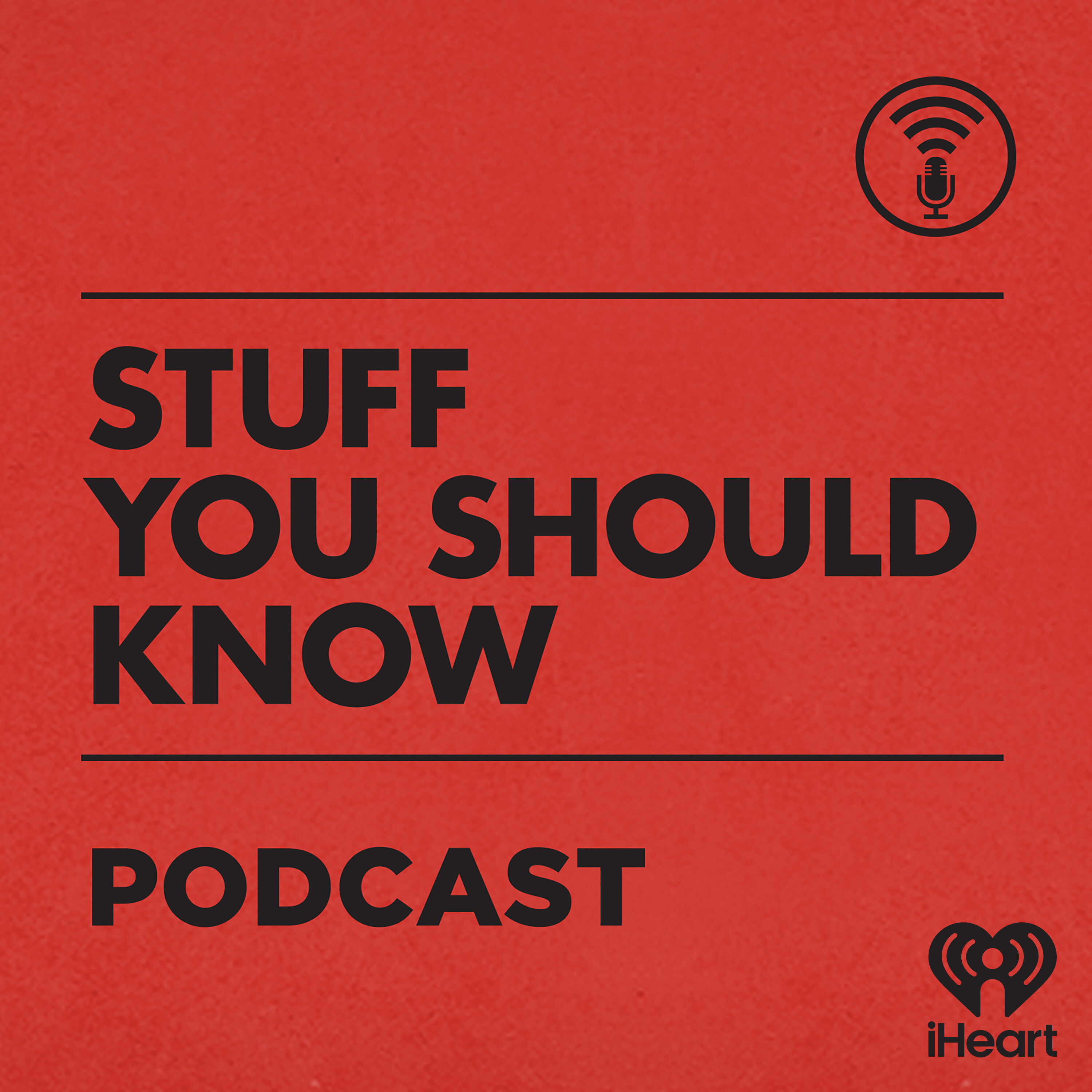Episode

Selects: How Sloths Work
Description
Everyone knows sloths are super slow, but do you know they’re slow because their bodies produce an astoundingly small amount of energy? And did you know that might be an adaptation that protects them from predators? Sloths are awesome and we prove it in this classic episode. Learn more about your ad-choices at https://www.iheartpodcastnetwork.comSee omnystudio.com/listener for privacy information.
Chapters
In this episode, the hosts discuss the positive effect that sloths have on humans and joke about the possibility of sloths saving humanity from extinction.
00:00 - 02:10 (02:10)
Summary
In this episode, the hosts discuss the positive effect that sloths have on humans and joke about the possibility of sloths saving humanity from extinction. They also talk about the difficulty of identifying producers from old TV shows.
EpisodeSelects: How Sloths Work
PodcastStuff You Should Know
Learn about the misconceptions surrounding sloths and why people find them so fascinating, despite their lack of activity.
02:10 - 08:47 (06:36)
Summary
Learn about the misconceptions surrounding sloths and why people find them so fascinating, despite their lack of activity. Sloths are often misunderstood and seen as cute and friendly, but it's important to remember they are wild animals that should be treated with respect in their natural environments.
EpisodeSelects: How Sloths Work
PodcastStuff You Should Know
Two-toed and three-toed sloths have some differences, but many similarities, that are more apparent than their differences, as they both evolved independently of each other and may be more distantly related than previously thought.
08:47 - 13:55 (05:08)
Summary
Two-toed and three-toed sloths have some differences, but many similarities, that are more apparent than their differences, as they both evolved independently of each other and may be more distantly related than previously thought.
EpisodeSelects: How Sloths Work
PodcastStuff You Should Know
Sloths have the ability to cut their heart rate and metabolism significantly, and can turn their head about 270 degrees thanks to an extra vertebrae, making them an extraordinary creature.
13:55 - 17:10 (03:15)
Summary
Sloths have the ability to cut their heart rate and metabolism significantly, and can turn their head about 270 degrees thanks to an extra vertebrae, making them an extraordinary creature.
EpisodeSelects: How Sloths Work
PodcastStuff You Should Know
Sloths, the slowest of mammals, spend most of their time sleeping and eating.
17:10 - 26:04 (08:53)
Summary
Sloths, the slowest of mammals, spend most of their time sleeping and eating. Although they are not prone to violence, two-toed sloths will eat small birds and insects when they have to, while the three-toed sloths are very picky with their food and tend to hang around one tree for an extended period.
EpisodeSelects: How Sloths Work
PodcastStuff You Should Know
Sloths move slowly because it's a defense mechanism and they digest food slowly, requiring a multi-chambered stomach to maximize nutrient absorption.
26:04 - 32:21 (06:17)
Summary
Sloths move slowly because it's a defense mechanism and they digest food slowly, requiring a multi-chambered stomach to maximize nutrient absorption. The algae that grows on their fur also serves as a defense mechanism and contributes to their tree-like scent.
EpisodeSelects: How Sloths Work
PodcastStuff You Should Know
Sloths have a symbiotic relationship with sloth moths and algae that grow in their fur.
32:21 - 36:56 (04:34)
Summary
Sloths have a symbiotic relationship with sloth moths and algae that grow in their fur. The sloth moths fertilize the algae which in turn feeds the sloths, and the slow decomposition of the sloth's poop helps nourish the surrounding rainforest.
EpisodeSelects: How Sloths Work
PodcastStuff You Should Know
The speaker talks about sloths naming and describes where the speaker is from.
36:56 - 41:58 (05:01)
Summary
The speaker talks about sloths naming and describes where the speaker is from. They also discuss how sloths spend their energy, and how cute they are.
EpisodeSelects: How Sloths Work
PodcastStuff You Should Know
Sloths are known to be loving and doting mothers, but sometimes they leave their young alone on the ground, which may be a surprising behavior to many.
41:58 - 46:19 (04:21)
Summary
Sloths are known to be loving and doting mothers, but sometimes they leave their young alone on the ground, which may be a surprising behavior to many.
EpisodeSelects: How Sloths Work
PodcastStuff You Should Know
Sloths are often hit by cars on roads that are built through their rainforest homes, which is a threat to their survival.
46:19 - 51:32 (05:13)
Summary
Sloths are often hit by cars on roads that are built through their rainforest homes, which is a threat to their survival. This is due to sloths moving from tree to tree sometimes on the ground, and the difficulty in keeping them alive in captivity.
EpisodeSelects: How Sloths Work
PodcastStuff You Should Know
The podcast host receives feedback on their practice of sharing their political and religious views on air, and reflects on the importance of alternative perspectives to encourage critical thinking.
51:33 - 54:15 (02:42)
Summary
The podcast host receives feedback on their practice of sharing their political and religious views on air, and reflects on the importance of alternative perspectives to encourage critical thinking.